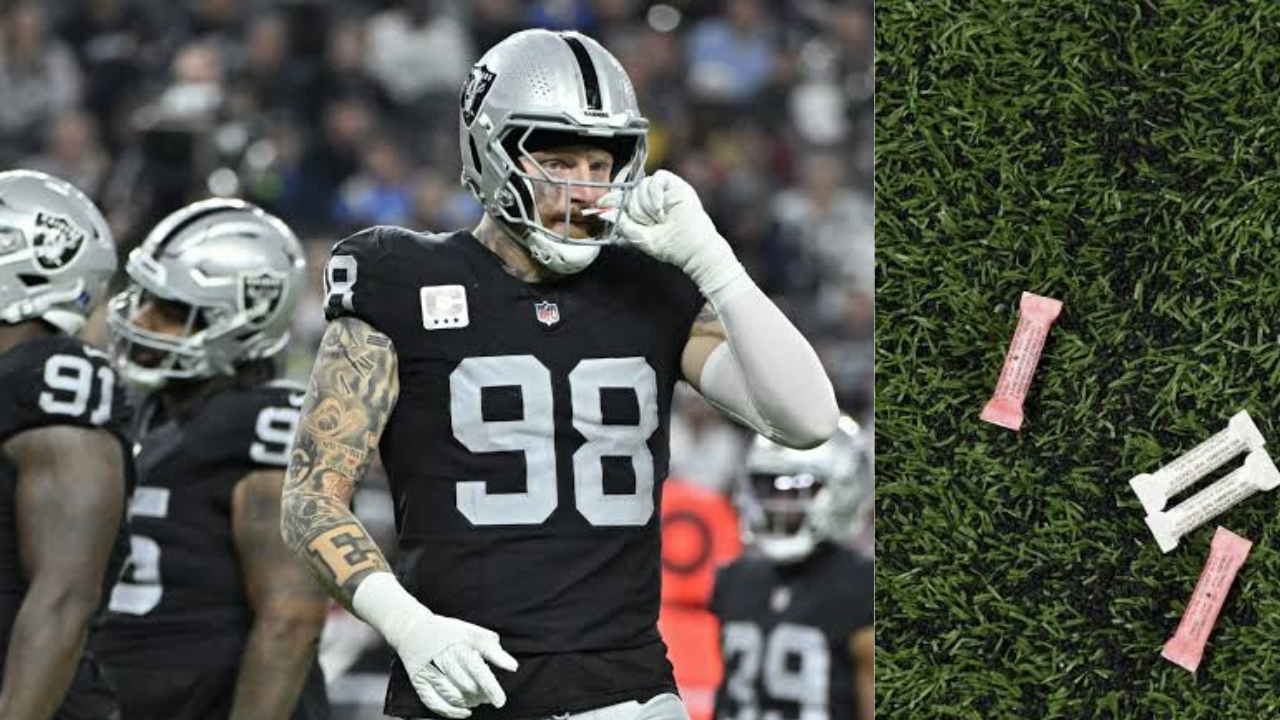The gridiron is a world of rituals. From the perfectly-timed cadence of a quarterback to the silent prayers of a kicker, every player has a routine that prepares them for the next play. For many, that ritual included a sharp, invigorating sniff of smelling salts. The familiar sight of a player inhaling deeply from a small packet before a big play has been a staple of NFL sidelines for decades. Now, in a move aimed at enhancing player safety, the NFL’s Ban on Smelling Salts is shaking up those routines, and nobody seems to be taking it more personally than San Francisco 49ers tight end, George Kittle.
Kittle, known for his larger-than-life personality and a relentless on-field motor, recently went viral with his reaction to the new policy. Joking that he was “distraught” and even “thought about retiring” because he uses the substance before “every single drive,” Kittle perfectly captured the sentiment of many players who rely on the powerful ammonia fumes for a quick jolt of alertness. While his comments were made in jest, they highlight a serious and significant change in the league’s approach to player health. The NFL’s Ban on Smelling Salts, while initially causing confusion, is a direct response to growing concerns about concussions and player welfare.
What are Smelling Salts, and Why the Sudden Change?
To understand the full impact of the NFL’s Ban on Smelling Salts, it’s important to know what these substances are and how they’ve been used. Smelling salts, or ammonia inhalants, are chemical compounds that, when sniffed, release a sharp, pungent odor. This aroma irritates the nasal passages and lungs, triggering an involuntary reflex that causes a sharp increase in heart rate and breathing. This effect is why they’ve long been a go-to for athletes who need a sudden burst of focus and energy.
Historically, smelling salts were used to revive people who had fainted. Their use in sports became widespread, particularly in contact sports like football, boxing, and hockey. For many players, the ritual of the smelling salts was a psychological trigger—a way to “wake up” the senses and prepare for the physical demands of the next play.
However, the medical community’s understanding of concussions has evolved dramatically over the years. The NFL’s Ban on Smelling Salts stems from a crucial new insight: the potential for these substances to mask the symptoms of a serious head injury.
A player who has taken a hard hit to the head might feel dazed, dizzy, or disoriented—classic signs of a concussion. The strong, stimulating effect of smelling salts could temporarily clear these symptoms, making a player feel fine enough to re-enter the game. This could lead to a situation where a player with a concussion continues to play, risking a second, more severe brain injury, often referred to as “Second Impact Syndrome.” The NFL’s Ban on Smelling Salts is a pre-emptive measure to prevent this dangerous scenario from happening.
The league’s decision was heavily influenced by a 2024 warning from the FDA, which highlighted the lack of evidence supporting the safety and efficacy of ammonia inhalants. The FDA also noted their potential to “mask certain neurologic signs and symptoms,” including those related to concussions. This FDA warning was a key factor in the NFL’s Ban on Smelling Salts.
Confusion on the Sidelines: The Initial Misunderstanding
The announcement of the NFL’s Ban on Smelling Salts created a whirlwind of confusion. Initially, it was widely reported that the ban was absolute and that players would no longer be allowed to use the salts in any form. This is what prompted Kittle’s viral reaction, as he was one of the first players to publicly address the new policy.
The NFL Players Association (NFLPA) quickly stepped in to clarify the situation. In a message sent to all players, the NFLPA explained that the ban was not on player usage, but on team distribution. In other words, the new rule prohibits team personnel—coaches, trainers, and doctors—from providing or supplying smelling salts to players. However, players are still permitted to use their own personal supply.
This clarification changed the narrative, but the core issue remains: the NFL’s Ban on Smelling Salts from the team’s official supplies is a significant policy shift. It’s a clear signal from the league that it is prioritizing caution and long-term health over a quick-fix stimulant. This distinction is vital for understanding the full scope of the NFL’s Ban on Smelling Salts and why it’s a major development in player safety.
The Long-Term Vision of the NFL
The NFL’s Ban on Smelling Salts is just the latest in a series of policy changes designed to address the league’s ongoing concussion crisis. Over the past decade, the NFL has invested heavily in research, implemented stricter concussion protocols, and modified rules of the game to reduce head-to-head contact.
The “Concussion Protocol” itself has become a household term, and the league’s system of independent neurological consultants and “spotters” in the booth is a testament to its commitment. The NFL’s Ban on Smelling Salts is a logical next step in this journey. By removing a substance that could potentially interfere with a medical diagnosis, the league is further empowering its medical professionals to make the best decisions for player health.
The league’s decision on the NFL’s Ban on Smelling Salts also aligns with similar policies in other sports. The International Boxing Federation and the National Rugby League in Australia have already banned the use of smelling salts for the same reasons. This global trend in sports medicine suggests that the NFL’s Ban on Smelling Salts is not an overreaction, but a responsible and necessary measure in the modern era of professional athletics.
Beyond Kittle: The Player Perspective
While George Kittle’s reaction was lighthearted, it’s a window into the player’s world. Many athletes, like Kittle, have relied on smelling salts for years. It’s not just a physical stimulant; it’s a mental one. The ritual provides a sense of control and preparation in a high-stakes, chaotic environment. For some, the sudden rush of smelling salts is a way to get “amped up” for a critical third-and-short or a game-winning drive.
The NFL’s Ban on Smelling Salts, even in its clarified form, forces players to adjust. They can still bring their own supply, but the change in the locker room and on the sideline environment is real. It marks the end of a communal ritual and a subtle shift in the culture of the game. The NFL’s Ban on Smelling Salts is a sign that the league is continuing to chip away at traditions that, while part of the game’s folklore, may not be in the best interest of player health.

This isn’t to say that all players are against the change. Many players are acutely aware of the long-term risks associated with concussions and head trauma. They’ve seen the devastating effects on former players and are supportive of any measures that make the game safer. The NFL’s Ban on Smelling Salts is, for them, a step in the right direction. The ongoing dialogue between the league, the NFLPA, and the players themselves is a critical part of this process, ensuring that new policies are implemented with both safety and player concerns in mind.
The Future of Player Wellness
The NFL’s Ban on Smelling Salts is more than just a new rule; it’s a reflection of a changing paradigm in professional sports. The focus is no longer just on winning the next game, but on protecting the athletes who make the game possible for years to come. The move highlights the delicate balance between the physical intensity of football and the need to safeguard the long-term health of its participants.
The NFL’s Ban on Smelling Salts will likely prompt other leagues to reconsider their own policies. As a leader in professional sports, the NFL’s actions have a ripple effect. This decision could lead to a broader conversation about what other substances or rituals, no matter how ingrained in the culture, might pose a hidden risk to athletes. The NFL’s Ban on Smelling Salts is a testament to the league’s evolving understanding of player wellness and its commitment to a safer future for the sport.
The debate over the NFL’s Ban on Smelling Salts reminds us that football is constantly evolving. From rule changes to new technology, the game is always adapting. In this case, the change is driven by the most important factor of all: the well-being of the players who put their bodies on the line every Sunday. So while George Kittle may have to find a new pre-snap ritual, the NFL’s Ban on Smelling Salts is a clear win for player safety across the league. This is just one more step in the long, and vital, journey toward making the game safer for all.



